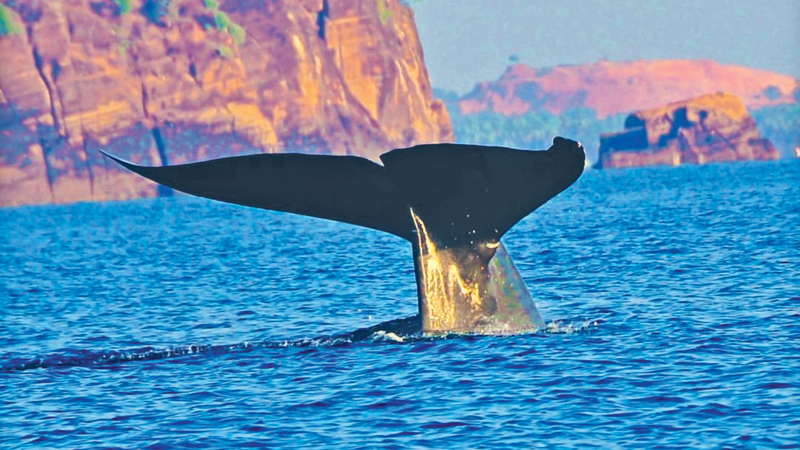The Embassy of Sri Lanka in Ethiopia recognises a timely and strategic opportunity to deepen cooperation with Africa’s coastal states. Through mutually beneficial partnerships centered on sustainable marine resource use, Sri Lanka can play a proactive role in advancing the global blue economy agenda.
Sri Lanka has the potential to promote shared prosperity, environmental stewardship, and maritime security across the Indian Ocean and African coastal regions by collaborating with the United Nations Economic Commission for Africa (UNECA) and other regional mechanisms
Of the 55 African Union (AU) member states, 38 are coastal, endowed with rich marine resources and a growing commitment to sustainable ocean development.
Covering nearly 70% of the Earth’s surface, the ocean is among the planet’s most vital ecosystems — regulating climate, supporting biodiversity, and sustaining livelihoods for billions.
The high seas, which lie beyond national jurisdictions, present a complex challenge for governance but remain essential to long-term global sustainability.
For Sri Lanka, an island strategically positioned in the Indian Ocean, the sea is not only an ecological lifeline but also a critical engine of economic growth and connectivity.
The Indian Ocean is a pivotal trade corridor, rich in hydrocarbons, fisheries, and biodiversity. Sri Lanka’s location at the crossroads of East Africa, the Middle East, and Southeast Asia places it at the centre of regional maritime routes and geopolitics.
With abundant ocean resources, Sri Lanka is well-positioned to contribute to the blue economy while ensuring ecological resilience.
This vision is closely aligned with the outcomes of the Third United Nations Ocean Conference (UNOC3) held in Nice, France last month.
The adoption of the Nice Ocean Action Plan underscored the urgency of international collaboration to safeguard marine ecosystems, particularly in support of Sustainable Development Goal (SDG) 14: Life Below Water.
These global priorities strongly resonate with Sri Lanka’s national development goals, as the country actively seeks to become a leader in sustainable ocean governance. In Africa, interest in developing the blue economy is accelerating. With 38 coastal states within the AU, momentum is building toward unlocking the economic and ecological potential of marine resources.
Even landlocked states such as Ethiopia are engaging in maritime strategies — Ethiopia, for example, conducts over 95% of its trade through Djibouti and is actively exploring enhanced maritime access. These evolving dynamics present strategic opportunities for Sri Lanka to collaborate with African partners, sharing expertise and fostering innovation in marine resource management.
Geographically, Sri Lanka sits at a critical maritime junction, connecting the western Indian Ocean to the Pacific via the Strait of Malacca. This location reinforces the importance of maritime law, particularly the United Nations Convention on the Law of the Sea (UNCLOS), which governs marine boundaries, economic zones, and rights over seabed resources.
Sri Lanka’s marine ecosystems face significant challenges. Climate change, coral bleaching, overfishing, and marine pollution are placing increasing pressure on coastal and marine habitats.
The 2004 Indian Ocean tsunami revealed the vulnerability of these systems and led to a renewed focus on coastal resilience through mangrove restoration and ecosystem-based adaptation. Today, the Government has designated over 21 marine sanctuaries and strengthened cooperation with global conservation organisations.
To fully realise the potential of its blue economy, Sri Lanka must adopt integrated strategies that prioritise research, policy innovation, and inclusive development. Sustainable fisheries, marine biotechnology, responsible tourism, and coastal climate resilience must form the pillars of its national strategy.
As a globally recognised biodiversity hotspot, Sri Lanka also serves as a living laboratory for ocean science, offering valuable insights into ecosystem-based management and sustainable resource use.
Under the national development framework “A Thriving Nation – A Beautiful Life,” the Government is modernising maritime infrastructure, investing in human capital, and promoting marine innovation. Development of harbours, fisheries, and maritime logistics is being pursued alongside legal reforms that safeguard environmental sustainability.
The Government is also advancing efforts to combat ocean plastic, protect biodiversity, and encourage eco-friendly coastal tourism.
As a nation endowed with vast marine resources and located at the heart of the Indian Ocean, Sri Lanka stands as both a steward and a beneficiary of the ocean’s future. Through active diplomacy, research cooperation, and innovative partnerships —particularly with Africa’s coastal states — Sri Lanka reaffirms its commitment to a sustainable, inclusive, and resilient blue economy for generations to come. – Embassy of Sri Lanka in Addis Ababa, Ethiopia







